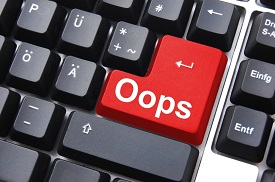 In a recent opinion from the United States District Court for Kansas, the Court held that privileged communications given by an expert to opposing party’s counsel will remain protected under the work product privilege.
In a recent opinion from the United States District Court for Kansas, the Court held that privileged communications given by an expert to opposing party’s counsel will remain protected under the work product privilege.
The defendant’s expert in Lloyds of London Syndicate 2003 v. Fireman’s Fund Ins. Co. of Ohio accidentally included in his expert disclosure an otherwise privileged email between himself and defense counsel. Upon discovery the defendant’s attorney attempted to assert privilege over the communication, and plaintiff’s counsel refused—arguing that any privilege had been waived by its disclosure.
Prior to the expert’s deposition he produced a copy to opposing counsel of his written report, as required under FRCP 26(b)(2)(B)—however, he inadvertently included a series of emails between himself and defense counsel discussing the report. During the expert’s deposition, defense counsel recognized the privileged email was disclosed and immediately alerted plaintiff’s counsel of the privileged nature. Plaintiff’s counsel refused and claimed that the email’s privileged protections were now waived by the disclosure.
The Court applied a five factor test to determine whether the disclosed information maintained its privileged status, or whether the disclosure waived these protections. The five factors looked at: (1) the reasonableness of precautions taken to prevent inadvertent disclosure; (2) the time taken to rectify the error; (3) the scope of discovery; (4) the extent of disclosure; and (5) the overriding issue of fairness. This test is applied in consideration of Federal Rule of Evidence 502(b), which states that privileged materials inadvertently disclosed do not lose their protection so long as the producing party took reasonable steps to prevent disclosure and rectify once disclosure occurs.
Plaintiff’s counsel argued that the five-factor test should not be applied under these circumstances because the disclosing individual was a testifying expert—as opposed to an attorney. The Court rejected that argument and instead held “it does not matter who inadvertently produced the information only that someone inadvertently produced it.” The court went on to state, “Although [defense] counsel could have monitored [defendant’s expert]’s culling [of privileged materials from his expert disclosure] more closely, the court nonetheless finds counsel’s actions reasonable,” and privilege was not waived.
Ultimately, the court’s holding maintains that even when an expert inadvertently discloses an otherwise privileged communication, the party has not necessarily waived its right to privilege. Whether privilege can be maintained is dependent on satisfying the five factor test, and not necessarily on who may have disclosed the communication.





